In the “Star Trek” television franchise universe there exists an often-repeated storyline that portrays the main-cast inadvertently slipping into a malevolent “mirror” universe or parallel universe. The most famous example is the also the first appearance of this scenario: the 1967 episode “Mirror, Mirror” from Star Trek: The Original Series. During a transporter accident, Captain Kirk, Dr. McCoy, Scotty and Uhura find themselves back on board the Enterprise, but their crewmates, including the resolute and trustworthy Mr. Spock are replaced by a group of constantly mutinous and violent counterparts – in this episode, the incessantly clean-shaven Vulcan First Officer sports a menacing mustache and goatee.
In the current neo-Marxist post-modern mentality that everything constitutes an endless battle between victim and oppressor, headed by Jesuit-priest James Martin, there is a concerted effort to invent a Catholic parallel universe wherein homosexuals are castigated, marginalized and rejected by vicious homophobic priests and bishops. According to James Martin, the hierarchy of the Catholic Church:
…has been really good at writing documents about them [homosexuals], preaching to them, fulminating about them, tweeting about them, condemning them, but they don’t listen to them very much.
In an August 29, 2017 interview, Martin stated that “hatred” for homosexuals is “rampant in the Church.”
Martin claims that the Catholic Church treats the LGBT community like “dirt” and “lepers.” And the mere mention of certain words or phrases from “The Catechism of the Catholic Church,” particularly “intrinsically disordered,” constitutes a deliberate act which is “needlessly cruel” and ultimately liable for contributing to LGBT teen suicide.
Similarly, Catholic commentator Mark Shea claimed that:
I cannot count the number of times I have seen gay Catholics I know–faithful, chaste, celibate ones–spoken of as sinister fifth columnists within the Church and regarded with suspicion simply because they are open, frank, and honest that they are sexually attracted to people of the same sex.
He added this remark:
What I am suggesting is taking seriously our evangelistic mission to gay people and not regarding them as vermin or invaders.
In an earlier article about Martin’s book “Building a Bride: How the Catholic Church and the LGBT Community Can Enter into a Relationship of Respect, Compassion, and Sensitivity,” Shea wrote that Catholic pharisaical “Inquisitors” make the following demand:
Stop being gay or go to hell–and that includes you chaste, celibate gays…
Unfortunately, this sort of rhetoric is completely unhelpful and has influenced those who have little or no experience with the Catholic Church; for example CNN contributor Sally Kohn in an op-ed about Catholicism, homosexuality and James Martin, said this about the Church’s stance on homosexuality, she writes:
…if the Catholic Church treated the LGBT community with even superficial respect, compassion and sensitivity, that would be a big step — and make a significant impact on the lives of LGBT Catholics whose family members have been taught by the church to hate them and who have been taught to hate themselves.
But much of this misunderstanding is facilitated by those who should know better within the Catholic Church; for example, when James Martin determines that words in “The Catechism of the Catholic Church,” concerning homosexuality, as “needlessly cruel,” Martin is equating the homosexual orientation with the person – and that is something the Catechism nor the Church ever does. And herein lies the problem, For James Martin and others believe that the homosexual inclination is an indelible, genetic and even God-given trait. Shea writes:
…while all other Catholics are judged according to what they do, gay people are judged according to what they are. And since what they are is not going to change, they are, by their very nature, rejected by God.
James Martin has repeatedly expanded on the same thought and argued that homosexuals are somehow born this way. During a 2017 interview, Martin said:
God made you this way. You are wonderfully made, just like Psalm 139 says. You were knit together in your mother’s womb this way, you know, it’s a mystery why you were made this way, but this is part of your identity.
A belief in the inborn permanency of the homosexual inclination creates a difficult anomaly for those who believe it and identify as “gay.” Jesuit priest and homosexual-advocate John J. McNeill once wrote:
Since most gay people experience their homosexual orientation as a part of creation, if they accept this Church teaching, they must see God as sadistically creating them with an intrinsic orientation to evil. Most gays would prefer to see the Church teaching as wrong, rather than believe God is sadistic.
Martin confirms this false hypothesis when he writes that the homosexual orientation constitutes one of “the deepest parts of a person—the part that gives and receives love…” And, its within this context that accusations of bigotry and discrimination have been made against the Catholic Church. For example, in a video series entitled “Owning Our Faith,” featuring various LGBT members from the “Out at St. Paul” ministry sponsored by The Church of St. Paul the Apostle in the Archdiocese of New York, a “gay” Catholic man criticizes the Catholic Church not for something cruel or unkind uttered by a specific priest or lay minister, but because Church teaching disallows homogenital activity; he said:
I think what’s interesting is that the Catholic Church probably thinks that it is accepting of gay people, because its message is ‘gay people exist and we should love them and not discriminate against them. But because the Church also tells gay people essentially that they need to be celibate, what the Church is saying is ‘you cannot live fully. You can be gay but you can’t live that life.’ And so that inherently is discriminatory.
James Martin repeatedly lauds “Out at St. Paul” as an example of an effective Catholic LGBT outreach; in fact, he included some footage from “Owning Our Faith” in his own promotional video for “Building a Bridge.” But this is not the only Catholic LGBT ministry in the United States which unapologetically disagrees with official Church teaching regarding homosexuality; similar ministries exist in several major cities and Archdioceses, including San Francisco, Seattle, New York City, Chicago, Los Angeles, Minneapolis, Baltimore, San Diego, Boston, San Jose, and Portland. Consequently, the influence that these ministries exert is undeniable. Most are controlled by openly partnered and or married “gay” Catholics and the majority of their complaints involve the lack of acceptance by the Church for same-sex relationships; this was especially true after the Obergefell decision in 2015. In fact, James Martin participated in an interview and a separate discussion with two same-sex partnered Catholic gay-advocates (Brandon Ambrosino at Villanova University and Patrick Hornbeck at Fordham) and both men described this lack of acceptance as the reason for their continued uncertainty towards Catholicism and or their reason for ultimately leaving the Church. According to Hornbeck, he decided to leave the Catholic Church because of his partner’s discernment as an Episcopal priest and that “it’s a helpful thing when the whole family can go to Church together and get married in Church and all those sorts of things.”
Dignity, which serves as a blueprint for all later gay-affirmative Catholic LGBT ministries that followed, expressed their core set of beliefs:
In reality, lesbians and gay men have been struggling with and forming spiritually committed relationships as long as the heterosexual community. Dignity, as a Catholic ministry to the lesbian, gay, bisexual and transgender community, believes lesbian, gay, bisexual and transgender persons can express and engage in sexual relationships in a manner that is consonant with Christ’s teachings and Christian values. It is at the core of our mission to support these relationships that can be loving, life-giving and life-affirming.
Besides repeating the protestations from LGBT advocates and partnered “gay” men and women, Martin finds it difficult to disclose any specific incidents of homophobic bigotry or discrimination perpetrated by Catholic clergy or lay ministers. During several recent interviews and appearances on his book tour, Martin often makes this inflammatory accusation: “I’ve heard many stories of people being treated poorly, by priests, by parishes…priests saying terrible things to LGBT people.” However, he endlessly repeated just one: a third-party anecdote about a “gay” men in a hospital who was allegedly refused the anointing of the sick from a hateful and heartless chaplain; he reiterated the story to various Catholic and secular news outlets, including: CNN, The National Catholic Register, America Magazine, St. Anthony Messenger and The New York Times.
Consequently, in 2018, Martin accomplished a cunning slight-of-hand and has changed his focus to the much more numerous cases (see here, here, and here) involving LGBT individuals who were fired from their job at local Catholic parishes and schools – just because they are “gay.” But even here, the truth does not support the parallel universe narrative. In the majority of these incidents, typically involving a teacher at a parochial school, the administration knew either before or afterwards, that the person was openly “gay.” For example, Mark Guevarra, a former “Pastoral Associate” in Edmonton Canada, immediately accused the Church of homophobia after he was fired. However, his same-sex partner, a well-known local Presbyterian pastor and LGBT advocate made this remark:
Mark was fired this week from his job as a Pastoral Assistant. They say it’s because he *gasp* has a partner and child, but they’ve known that for years. The real reason he’s fired is because he started an LGBTQ prayer group. Let that sink in. He was fired for praying with the “wrong” people.
While its correct that the parish undeniably knew of Guevarra’s personal life, namely because of the social media posts from both him and his partner, but the matter of his termination of employment was most likely not due to any sort of organized bigotry, but because Guevarra began an alternative LGBTQ “mass” held at the University of Alberta. In addition, far from the Diocese fostering an anti-LGBT environment, in Edmonton there is a very active and vocal Catholic Teachers – Gay Straight Alliance. Other similar cases, one of which Martin explicitly touted on his Twitter account, typically involve a “gay” employee partaking in a very public same-sex marriage ceremony. Martin believes that because heterosexuals involved in other forms of irregular relationships are not also fired from their jobs – this is inherently “discriminatory.” While it may be hypocritical and inconsistent, it is nevertheless not discriminatory. While I certainly do not believe that heterosexuals should be given a free pass, nevertheless – a heterosexual relationship remains essentially redeemable in a way that is impossible for a same-sex “marriage.”
But James Martin is willing to exploit these incidents in order to elicit sympathy from the Catholic faithful and to force a “dialogue” with the hierarchy; but Martin also believes that true understanding and change will only occur through personal friendships between the hierarchy and LGBT Catholics; as an example, he has repeatedly told the story of a father with a “gay” son “who meets once a month with his local bishop, who’s not particularly open to these issues. Over time, though, the bishop has come to understand things in a new way.” A slow albeit steady approach seems to be working; during a 2015 interview, Cardinal Christoph Schönborn of Vienna made this statement about a friend involved in a same-sex relationship:
“It’s an improvement.” [They share] “a life, they share their joys and sufferings, they help one another. It must be recognized that this person took an important step for his own good and the good of others, even though it certainly is not a situation the Church can consider ‘regular’.”
This might become the realization of an ominous prediction made by Jeannine Gramick, the co-founder of the censured New Way Ministry:
But because I know church history, I know change takes centuries…We are planting seeds for change at the upper level of leadership.
Gramick was the subject of a lengthy Vatican investigation resulting in 1999 with an official “Notification” demanding her permanent removal “from any pastoral work involving homosexual persons.” Gramick refused to obey the Notification – and in 2017, James Martin called for her canonization.
But this current crisis of confusion is not the fault of the LGBT community; furthermore, even the most strident LGBT Catholics pushing for Church acceptance of homosexual marriage are not to blame. In my opinion, the onus falls flatly on episcopal leaders who have allowed misunderstanding to persist and simultaneously did not support healthy options such as Courage. While Mark Shea writes that chaste same-sex attracted Catholics are viewed as “sinister fifth columnists within the Church,” I have found the exact opposite to be the reality. For the most part, while trying to promote the work of Courage, most priests that I have spoken with are either disinterested or dismissive; its not that they wholly disagree (or at all) with promoting chastity among the LGBT community, but that they are already overextended with their own current parish councils and ministries and are simply unable or unwilling to further stretch their often limited resources and time; this has overwhelmingly been the case even in an area with one of the largest LGBT populations in the United States. For many, it’s likewise a controversial issue that they would understandably rather avoid. While there are priests and lay ministers who are openly sympathetic and supportive to the cause for full inclusion of LGBT Catholics into the Church, they are usually stationed where a gay-inclusive ministry already exists. In those cases, their attitudes are remarkably similar to those expressed by James Martin when he commented on those who take issue with some of his claims:
I know just for the record that a lot of the people who are critiquing me online are self-professed…former gays. So it’s a lot of former gay people. And I would say that there’s a lot of conflict going on. So, it’s sad because what happens is their own junk inside gets focused outwards on people who are actually trying to live a more integrated life.
I heard this argument many times, beginning just a few days after I decided to leave homosexuality; priests told me that I was “born gay” and that in order to experience true lasting fulfillment and happiness – I must try to “settle down” with one man. Walking into that church building, I was dubious about what I would find. But I was desperate and wanted to have some hope. Ever since I decided to pursue contentment and peace as a “gay” man, I often felt as if I were living in some parallel universe. At first, stepping through the looking-glass and into a world where no one laughed at me or teased me for the way I dressed, talked or walked was an immensely liberating experience. The distant and inaccessible domain of men was suddenly opened to me. The lonely little boy wasn’t alone anymore. Then, wonderland became the night-of-the-living-dead. I felt trapped as if I had nowhere else to go. I couldn’t go back – to what? As imagined in another famous episode from Star Trek, “All Our Yesterdays,” I thought, that in willfully stepping through the portal from one plan of existence into another, I had been irreparably transformed. I had to stay here. But I was near-death and I wanted to escape.
If the Church is guilty of anything, its certainly not any form of hatred or bigotry towards the LGBT community. And the Catholic church never treated any “gay” person like “dirt” or a “leper;” even if the Church did just that – its record of assistance and compassion towards those with leprosy is certainly enviable from St. Francis of Assisi to Mother Teresa of Calcutta; its also no accident that among the first to establish AIDS hospices were the Missionaries of Charity.
Throughout much of my life, I could have been one of the space-age hippies from yet another chapter in the Star Trek saga: “The Way to Eden” from 1969: the year of my birth. When I was a gullible teenager, every day began with a preoccupation towards a singular goal – finding a mythical paradise where I might finally know never-ending bliss. And like the future flower-power characters in Star Trek, I would do anything to get there; including risking my life and disregarding the rights of anyone who got in my way. Following the melodious baritone chorus from The Village People’s disco-song “Go West,” in the Castro District, I thought I found it. When I crawled out of the rainbow neighborhood of my adolescent dreams, I admittedly still needed to believe that a place existed where honesty and truth survived. Instead, there was uncertainty. A Church of menacing Catholic priests, under the dictatorship of bigoted self-loathing Bishops, did not exist. If anything, there has been indecisiveness to the point of inertia, but also negligence or obvious facilitation which allowed homophile groups, operating under the guise of a Catholic LGBT ministry, to thrive in numerous dioceses and mislead countless souls. This Church on the parish pastoral level proved almost indistinguishable from the overtly LGBT-affirmative fantasyland that I wanted to leave.
Almost inadvertently, I discovered a small, almost forgotten, little world orbiting very close to the Son of God. This was a humble space with no flowing banners, contingents in the local Pride parade, or gay masses. As a dearly departed friend once described: the meetings were a bit “clandestine,” the facilities provided by the diocese for our gatherings somewhat dark and dank, and the disgust emanating from local Catholic LGBT ministries, which are typically hosted at centrally located and magnificent architectural treasures, was eminently palpable. But I didn’t care. Here, there were a handful of priests supported by only a few stalwart bishops, who took the time to care. Many of us showed up solely to find a confessor who agreed with us – that homosexual activity constituted a problem in our relationship with Christ. At least for an hour or so – it was a safe place. If anyone treated us with any sort of disrespect or hatred – it didn’t emanate from priests or Bishops, but from the very ministries which James Martin supports. Don’t look for hatred in others – look in the mirror.
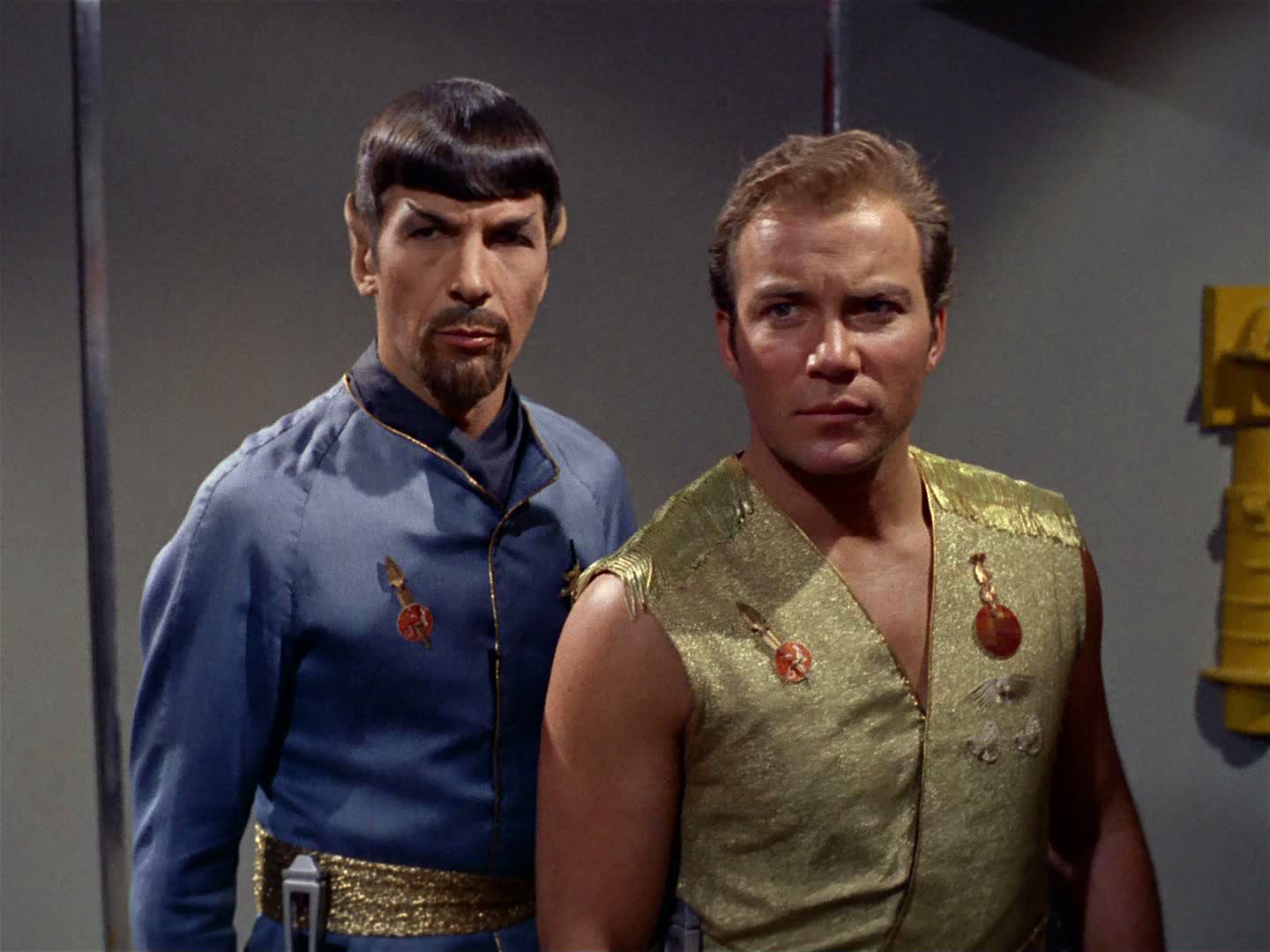

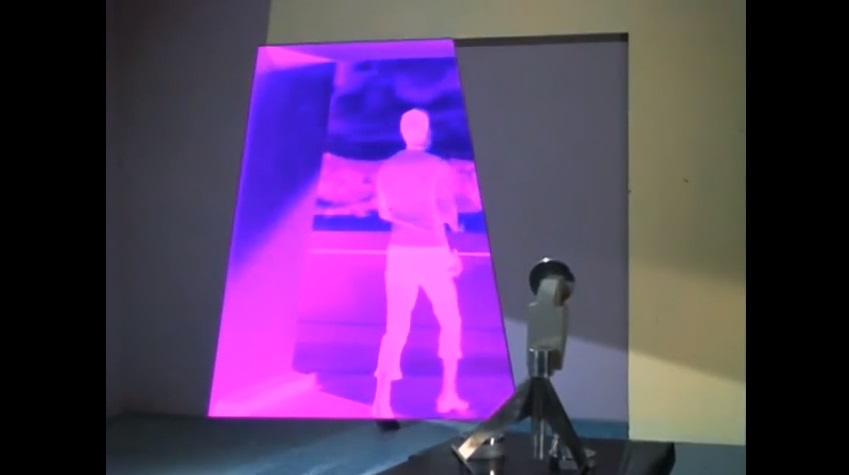
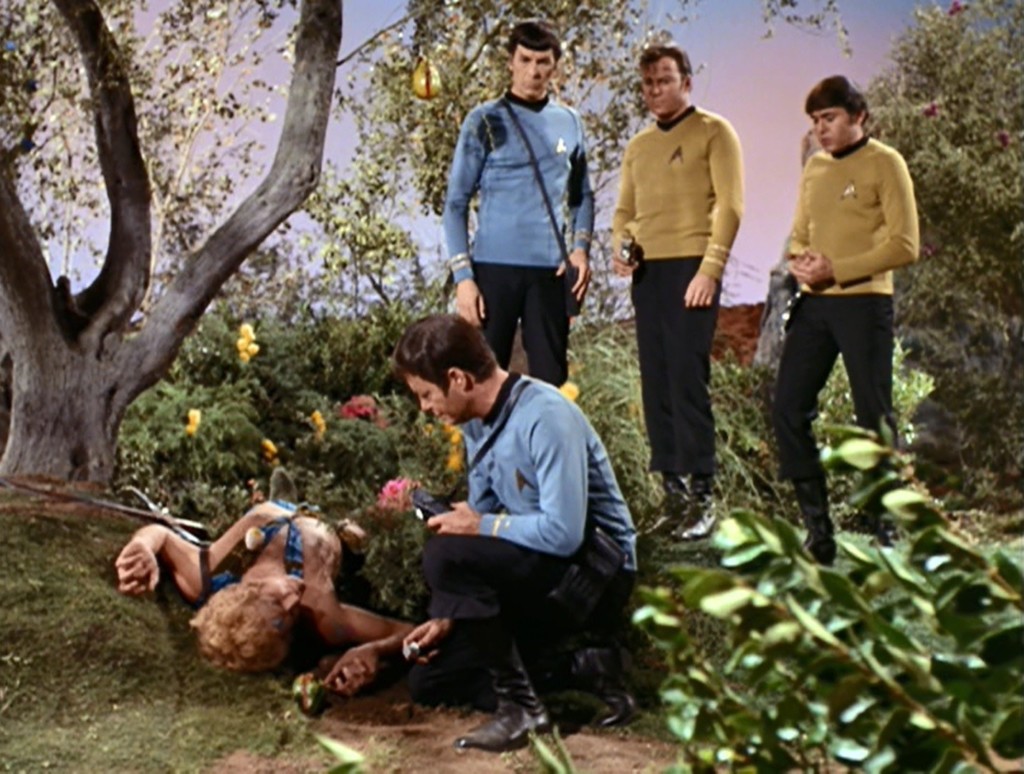
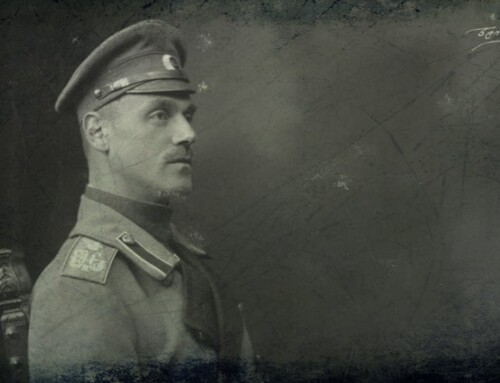
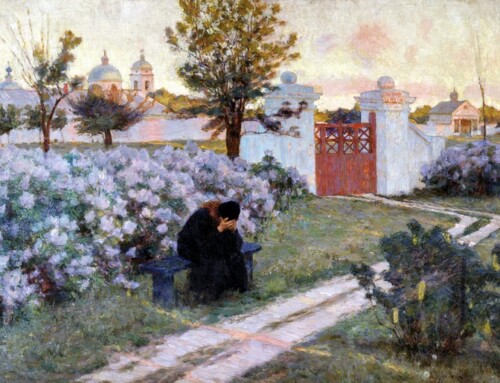
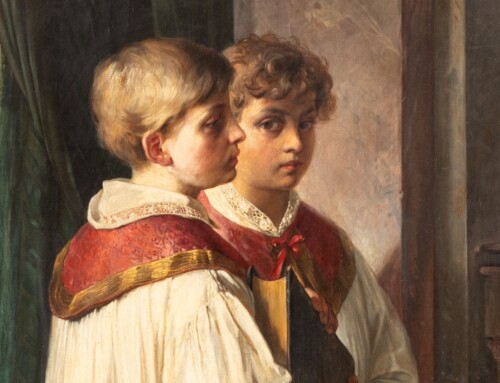
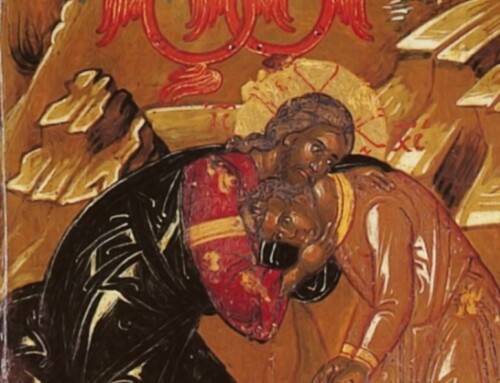
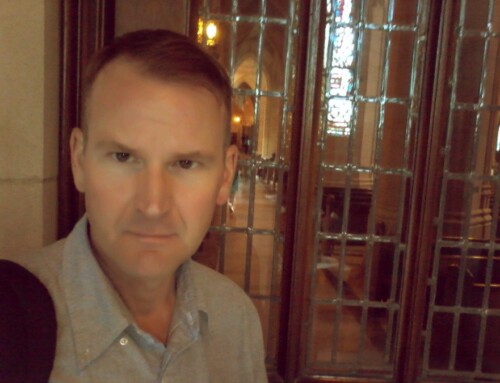
That there should be few who find the Way is entirely consistent with the Savior’s warning that the path to destruction is broad, and His path narrow. Thank the Lord for those who have found His way.
Satan will be on this soapbox until Jesus returns.
I really hated those transporter malfunctions.
Live long and prosper Joseph.
“ ..a significant impact on the lives of LGBT Catholics whose family members have been taught by the church to hate them and who have been taught to hate themselves.”..
As a “ family member” myself I see the Church as teaching the opposite of hating my loved one with SSA. I never ever got the message from “the Church “ to hate my loved one simply becuae they had those attractions . Rather the Church has always taught that we are to Love as Christ loves .
While we dont affirm sinful actions, It doesnt mean we see the Person themselves any differently , or reject or “ hate” them. To “ hate “ someone simply becuase they struggle with a temptation would be sinful for us .
I wouldnt want someone to hate me simply becuase I struggle with gluttony- or to define me by my struggle in this particular area.
Fr Martin is dishonest( as is Mark Shea) , to make the claim that “ the Church” teaches those with ssa or their families – to hate them. We are all commanded to love as Christ loves .
Hello James,
Just saw you on Mic’d Up. I would like to know if you could send me updates about your 2nd edition. I would like to buy it as soon as it is ready.
Maybe you could create a “notify me when it is available” button on your website page about the book.
Thanks,
Robert